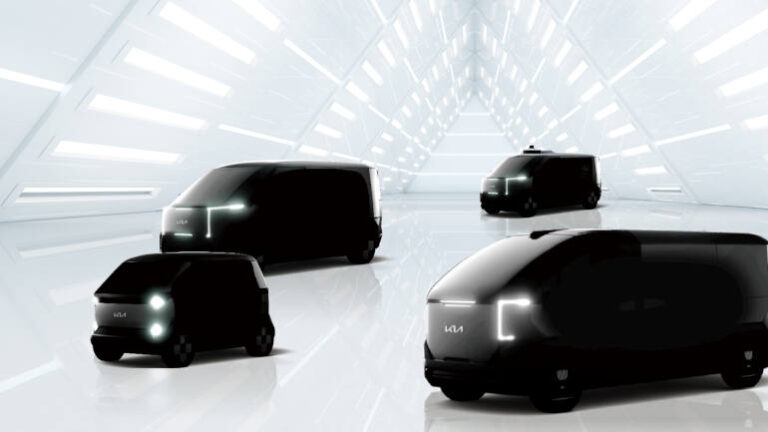Kia is pioneering the future of electric mobility with its Purpose-Built Vehicle (PBV) program, aimed at addressing the diverse needs of global fleets. Set to launch in 2025, PBVs are customisable electric vehicles designed specifically for sectors like logistics, ride-hailing, last-mile delivery, and even healthcare services. With a focus on sustainability and versatility, Kia’s PBVs have the potential to revolutionise how businesses approach fleet management by offering advanced technology and tailored solutions to meet industry-specific demands.
Customisation and Flexibility
Kia’s PBV program offers a major advantage in terms of flexibility. The vehicles are designed to be adaptable, with custom-built features tailored to suit different types of business operations. For logistics and delivery services, for instance, a PBV can be modified for maximum cargo space and equipped with electric drivetrains to reduce operational costs and environmental impact. For the ride-hailing industry, Kia’s PBVs will provide comfort and safety, optimised for urban transport and shared mobility solutions.
This level of customisation also extends to vehicle design. Kia aims to manufacture PBVs on modular platforms, allowing businesses to adjust vehicle configurations as their needs evolve. This adaptability means that fleet operators across various sectors can future-proof their operations by choosing vehicles that can be modified to meet changing requirements.
Sustainability at the Core
Sustainability is a central focus of Kia’s PBV initiative. All vehicles in the program will be fully electric, contributing to the reduction of greenhouse gas emissions and helping businesses meet global sustainability targets. As more countries implement stricter regulations to combat climate change, adopting electric PBVs can help companies remain compliant with evolving environmental standards. This is particularly beneficial for large fleets in sectors like logistics, where fuel efficiency and emissions reduction are top priorities.
Kia’s commitment to eco-friendly solutions also extends to the production process. The PBV program will use sustainable materials wherever possible, further reducing the carbon footprint of these vehicles throughout their lifecycle.
Advanced Technology for Seamless Operations
Kia’s PBVs are designed to integrate advanced technology, offering features such as autonomous driving capabilities, AI-powered route optimisation, and real-time fleet management systems. These innovations can significantly enhance operational efficiency, reducing downtime and improving delivery times for logistics businesses. For fleet managers, the ability to monitor vehicle performance and optimise routes in real time means better resource allocation and reduced operational costs.
In addition to these benefits, Kia is also exploring the integration of robotics and smart city solutions within the PBV framework. This forward-thinking approach positions Kia’s PBVs as not just vehicles, but as essential components of a larger, more intelligent mobility ecosystem. This is a game-changer for industries like healthcare, where PBVs could potentially be used as mobile clinics or for the transportation of medical supplies in smart cities.
Global Implications for Fleets
Kia’s PBV program is designed with global scalability in mind. Whether for small businesses or large multinational corporations, PBVs can be customised to suit different regional and operational requirements. This makes Kia’s PBV lineup an attractive option for fleet managers seeking versatile, sustainable solutions that can adapt to both local and international demands.
As fleet operators worldwide seek to reduce emissions, improve efficiency, and remain competitive, Kia’s PBV program provides a compelling option that aligns with future mobility trends. By offering vehicles that are not only environmentally friendly but also technologically advanced and highly customisable, Kia is helping businesses transition to a cleaner, more efficient future.
Kia’s PBV program represents a significant leap forward in the way businesses approach fleet management, offering both flexibility and sustainability in one comprehensive solution.






